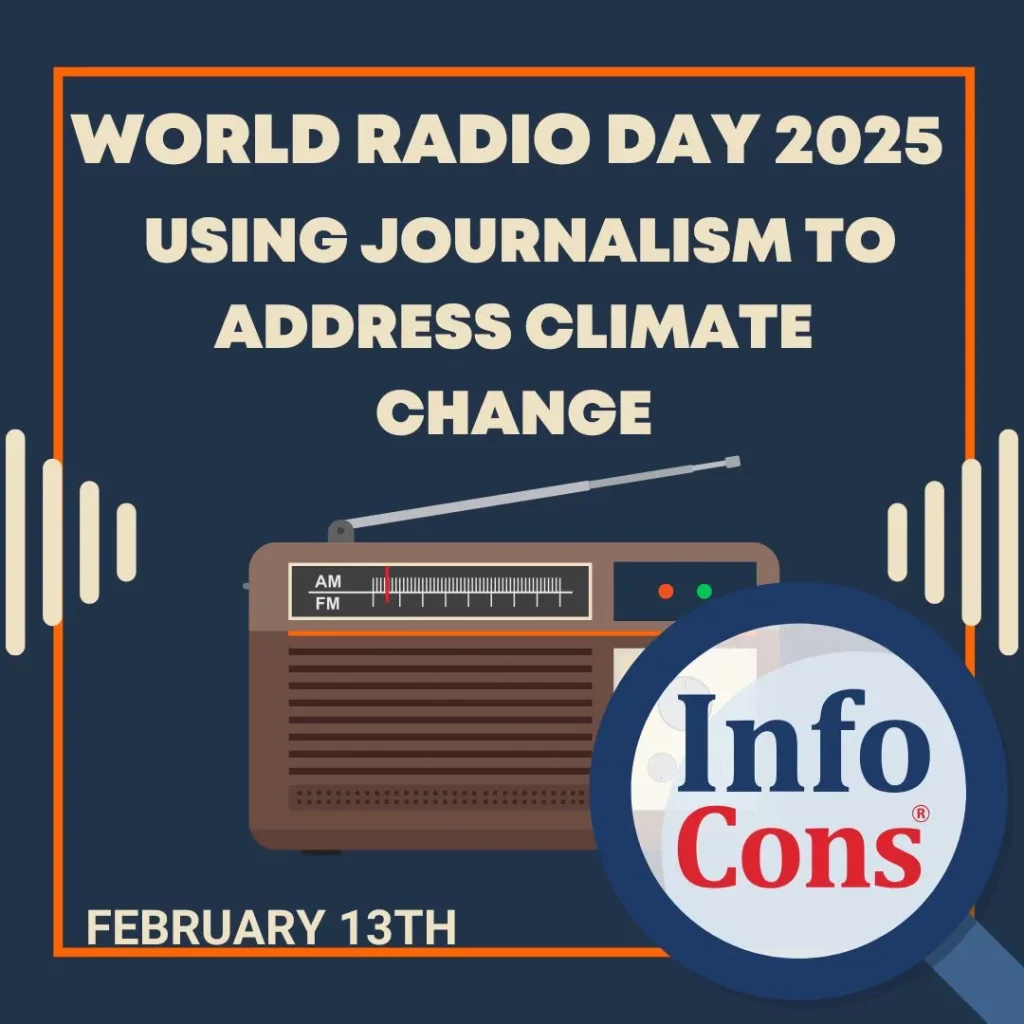
As the world continues to face the worsening impacts of climate change, the role of effective communication has never been more crucial. In 2024, the planet recorded its warmest year on record—a grim milestone that underscores the urgency of climate action. From the devastating wildfires that ravaged California to the extensive land degradation affecting billions of lives, climate events are no longer isolated incidents; they are global crises demanding attention and action.
Looking ahead, 2025 is poised to be a defining year for climate action. Under the Paris Agreement, global greenhouse gas emissions must peak by 2025 if we are to keep global warming within the critical threshold of 1.5°C. Beyond that, emissions must start to decline rapidly. With such high stakes, the role of media—particularly radio—in shaping public discourse and raising awareness has become indispensable.
Why 2025 Is a Critical Year for Climate Action
The year 2025 is not just another marker on the timeline of climate change—it represents a turning point. Scientists and policymakers have long emphasized that limiting global warming to 1.5°C is essential to avoid catastrophic impacts, including rising sea levels, extreme weather events, and loss of biodiversity.
The Paris Agreement outlines a clear mandate: by 2025, global greenhouse gas emissions must reach their peak. From that point forward, they need to decline steeply. Achieving this requires coordinated global efforts, from transitioning to renewable energy sources to implementing sustainable agricultural practices.
However, progress depends not only on policy and innovation but also on how effectively the message is communicated to the public. This is where radio—a powerful and far-reaching medium—plays a pivotal role.
Read also : Epilepsy Prevention : How 1 in 4 Cases Can Be Avoided
The Role of Radio in Climate Change Communication
World Radio Day on February 13, 2025, is themed “Radio and Climate Change,” highlighting the medium’s potential to influence public opinion, foster awareness, and drive action. Despite the rise of digital platforms, radio remains a trusted source of information for millions, especially in rural and underserved communities where internet access is limited.
- Breaking Through Barriers: Challenges in Climate Reporting
Radio broadcasters face significant challenges in delivering high-quality climate journalism. Financial constraints, staff reductions, and rising costs of obtaining verified information have strained the industry. Despite these hurdles, radio stations must prioritize diverse and reliable sources to ensure accurate and impactful reporting.
- Tackling Climate Misinformation
One of radio’s most important roles is to address the spread of misinformation, particularly from climate skeptics. By presenting evidence-based narratives, dismantling unfounded arguments, and debunking greenwashing tactics, broadcasters can help listeners understand the realities of climate change.
- Exploring Key Topics in Climate Reporting
To effectively engage audiences, radio coverage must go beyond surface-level discussions. Topics such as ecological economics, climate activism, and the barriers to implementing solutions deserve greater attention. By delving into these areas, radio can provide listeners with a deeper understanding of the systemic issues driving climate change.
Read also : How to Recover from a Data Breach and Safeguard Your Personal Data
Editorial Independence: Upholding the Public Interest
For radio to serve as an effective tool in climate change communication, editorial independence is paramount. Free and unbiased reporting ensures that climate coverage is not influenced by corporate interests or political agendas. When stations prioritize journalistic integrity, they empower the public with accurate information and inspire collective action.
However, maintaining independence requires adequate funding and resources. Supporting public broadcasting and ensuring financial sustainability are essential for radio to fulfill its role as a guardian of the public interest.
Harnessing Radio’s Power to Combat Climate Change
As the world stands at a critical juncture, the importance of clear, reliable, and engaging communication about climate change cannot be overstated. Radio, with its unique ability to reach diverse audiences, holds immense potential to inform, educate, and mobilize action.
The theme of World Radio Day 2025—“Radio and Climate Change”—serves as a timely reminder of the medium’s responsibility in addressing this global crisis. By prioritizing accurate reporting, tackling misinformation, and upholding editorial independence, radio broadcasters can contribute to a more informed and proactive society.
The message is clear: 2025 is a year of action, and radio must play its part in shaping a sustainable future.
Source : United Nations
InfoCons – European Organization for Consumer Protection and Promotion of Programs and Strategies , a full member of the World Organization Consumers International , founding member of the Federation of Consumer Associations , and member of ANEC .